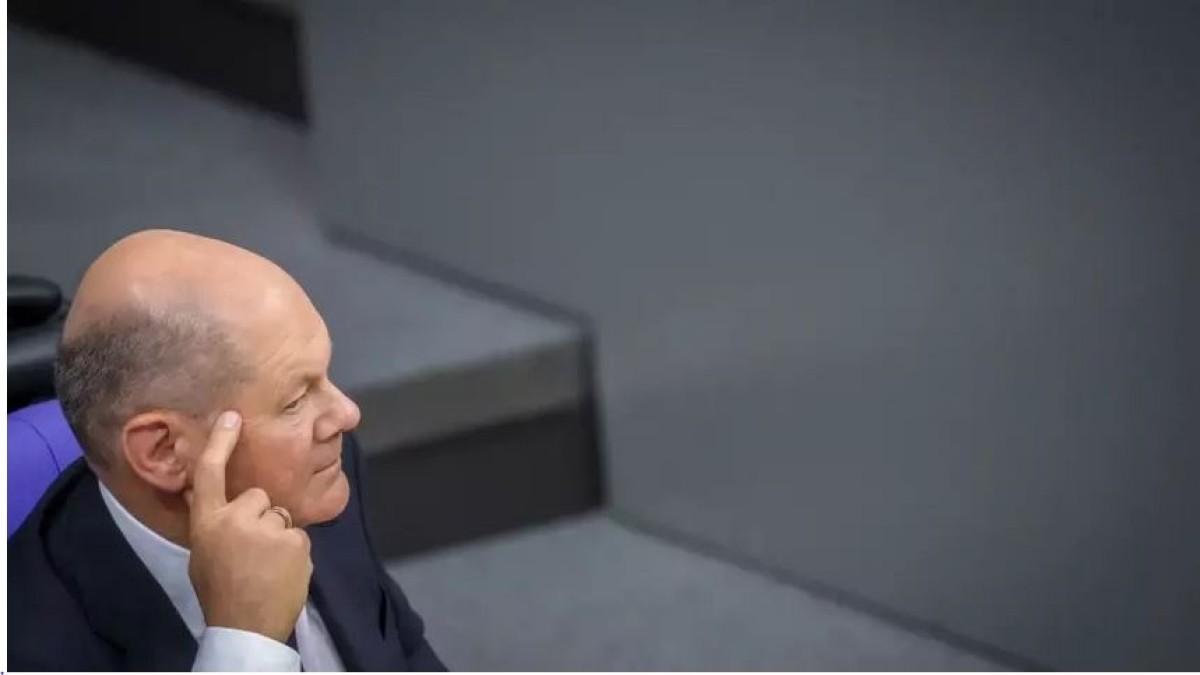 729
729
Shattered and Leaderless: Will Political Fragmentation Destroy Germany?
Shattered and Leaderless: Will Political Fragmentation Destroy Germany
?
By: A. Mahdavi
In the post-Merkel era the German political landscape has devolved into a state of disarray an impasse defined by a profound vacuum of leadership. Despite the Herculean efforts of political luminaries and party hierarchies the elusive ideal of a unifying figurehead has remained beyond reach. The aftermath of Angela Merkel’s departure has left the nation drifting a rudderless vessel beset by internecine rivalries and a fragmented electoral mandate. Neither at the federal nor the regional level have Germany’s political rivals yielded a coalition capable of commanding an absolute majority.
This bleak tableau was rendered even grimmer by a seismic rupture in the federal government. The dismissal of the Finance Minister by Chancellor Schulz—a move tantamount to a political coup within his own coalition—has plunged the administration into statu praecario an unstable minority government surviving on borrowed time. With the Bundestag poised to scrutinize the Chancellor’s precarious position, Germany teeters on the precipice of a full-blown constitutional crisis.
In a gambit both audacious and fraught with peril Chancellor Schulz now appears to be courting the prospect of early elections pulling the electoral calendar forward by a perilous six months. Yet this strategy though desperate may prove fruitless. The opposition spearheaded by the Christian Democratic Union (CDU) and its Bavarian ally the Christian Social Union (CSU) views this maneuver as Schulz’s swan song a concession to the grim reality that his tenure has failed to steer the German polity toward social welfare. These factions alongside other voices in the political agora now clamor for a transformative leader one capable of reanimating the country’s enervated national ethos.
Among the aspirants vying for the chancellorship, two figures have emerged as polar opposites on Germany’s ideological spectrum: Robert Habeck, leader of the Green Party, and Friedrich Merz, a well-known member of the Bundestag and leader of the conservative opposition. Habeck, cognizant of the schisms that define Germany’s current political landscape, strikes a cautious tone, acknowledging the near-impossibility of forging a national unity government amidst the deep divisions between the parties. His trepidation forebodes a descent into a crisis maxima—a paralysis that could render governance itself untenable.
Conversely; Merz approaches the moment with the zeal of an ideologue unbound by convention. Espousing radical measures that skirt the boundaries of international norms Merz envisages a renovatio of Germany’s economic and political might. His proposals to shutter Germany’s borders to asylum seekers and to embrace an unbridled laissez-faire capitalism have evoked comparisons to the disruptive populism of the Trumpian epoch. Merz’s willingness to align with far-right factions raises the specter of a societal rupture that could inflame Germany’s multicultural fabric.
Yet; the stakes transcend the domestic sphere. Germany’s steadfast support for Ukraine—an imperium cornerstone of its foreign policy—is now imperiled by the political void. Merz’s alignment with Trumpist ideals could further strain transatlantic relations injecting discord into Germany’s role as a linchpin of European unity. Should Merz ascend to the chancellorship his approach to the Ukrainian conflict and the broader European project will serve as bellwethers for a continent caught in an unending cycle of turmoil.
This domestic turmoil reverberates across the European Union threatening to erode the unio compacta that has long underpinned the bloc’s collective strength. Germany the economic and political colossus of Europe now risks collapsing into a state of fragility. The specter of German parochialism—prioritizing res domesticae over res Europaeae—could exacerbate the EU’s structural fragilities particularly as other member states such as the economically beleaguered Czech Republic falter.
The electoral prospects too cast a pall over the nation’s future. A fractured electorate disillusioned by desperatio politica offers scant hope for a decisive mandate. Should early elections proceed the resultant parliamentary mosaic will likely be no less fragmented compelling yet another fragile coalition—a recipe for a continual unrest and instability.
Germany once the paragon of stability and the torchbearer of European integration now stands at an inflection point. The Chancellor’s desperate maneuvers the opposition’s ideological brinkmanship and the electorate’s waning confidence converge to paint a portrait of a nation ensnared in its own contradictions. This is not merely a crisis of governance but an existential reckoning. The choices made—or left unmade—in the coming months will not only dictate Germany’s trajectory but may also presage the mors lenta of European solidarity itself.
One is left to ponder whether the German public, renowned for their post-war wisdom, shall rise to this moment of trial or whether the res publica will succumb to the undertow of its own unraveling.
 729
729
Comment
Post a comment for this article